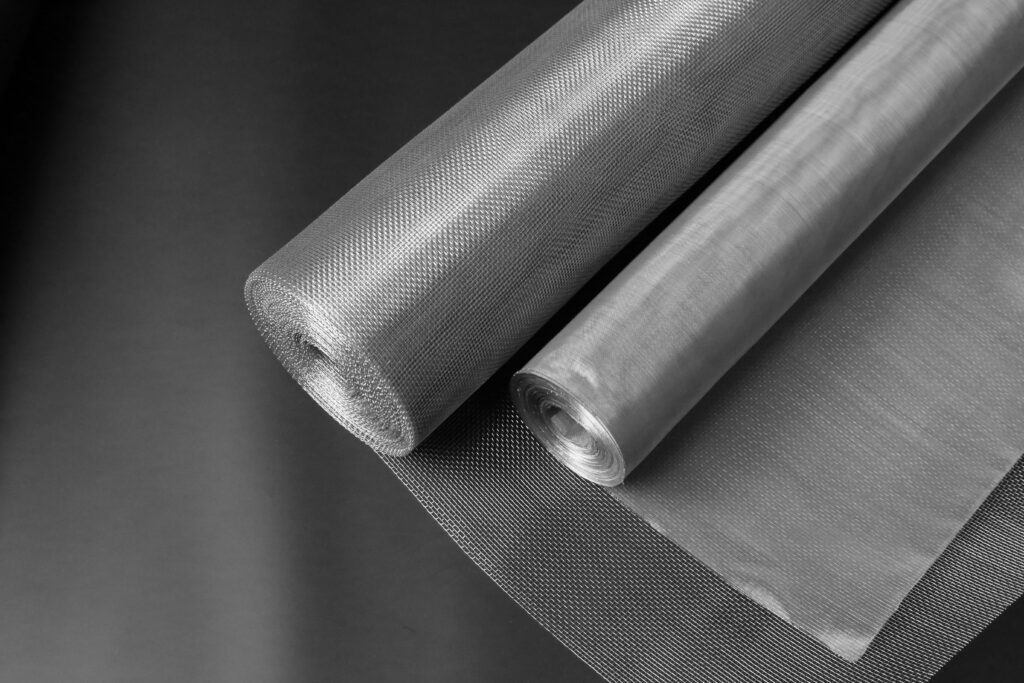
Wire cloth specifically Woven Wire Cloth is constructed by a series of metal wires interlaced together. Various combinations of metals/alloys and specific wire diameters create a product with uniform openings across the surface. Other names include metal fabric or metal cloth, wire mesh, and metal mesh.
Read on to learn about wire cloth and how something simple can be functionally critical in many applications and industries.
How is Wire Cloth Made?
Industrial wire cloth is made by weaving metal wires together. A wire cloth manufacturer may often produce the material in several weave styles, with limitless combinations possible for aperture sizes and wire diameters.
How is Wire Cloth Produced?
The weaving process first takes metal wires and feds them into a loom that will create the necessary pattern. These machines accurately and consistently manufacture material to exact standards. This includes width, length, opening size considerations etc.
What is Wire Cloth Used for?
The products are nearly endless because manufacturing companies can produce the material using various metal types, wire diameters, and aperture sizes.
Changes in the specifications allow manufacturers to use wire mesh in multiple applications, from the finest sheer gauze to heavy-duty filtration screens and construction support.
Some companies also offer different construction and custom options. If you require a flexible material that can fit specific usage requirements and is durable, contact a wire mesh manufacturer.
Companies that provide a range of wire mesh products can fulfill your project needs.
Many industries utilize woven wire cloth that include automotive, aerospace, architectural, food handling, chemical, pharmaceutical, paper production, hygiene and sanitation, medical, radio and microwave screening, wastewater processing, and more.
What Weaves Can You Choose?
Manufacturing companies can produce wires in different weaves, with weave styles that include:
- Twill weave: When a wire cloth has each warp wire, the shute wire passes over and under two adjacent wires. The wires go in the same horizontal and vertical directions. Choose this pattern if you want a mesh with a heavier wire.
- Pre-crimp weaves: Coarser wire cloth and mesh specifications utilize this construction. The wires are weaved after they are crimped. That way, the shute and warp wires nest with each other, with no random movements to dislodge them. Plain or double crimp weave is the most common type of pre-crimp weave.
